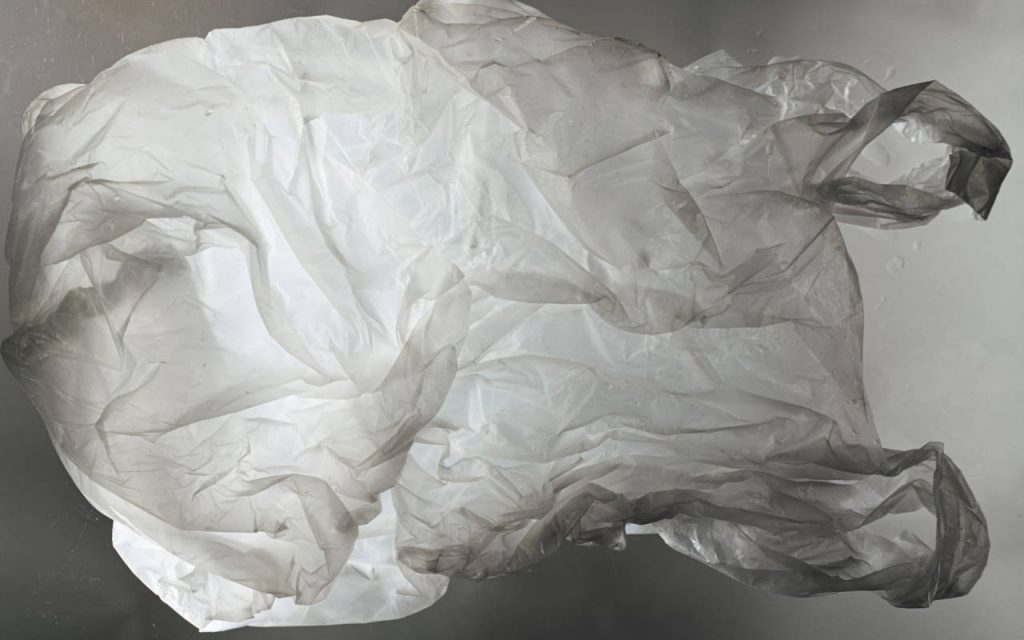In 1959, Swedish engineer Sten Gustaf Thulin invented the plastic bag. He developed a method of forming a simple one-piece bag by folding, welding and die-cutting lay flat tubing.
He worked for a company called Celloplast, who were quick to patent Thulin’s design in 1965 – and this is the version of the plastic bag we all use today. By the 1980s, just about every supermarket and shop in the world had switched from paper to plastic, using Celloplast’s design.
Thulin genuinely believed that durable plastic bags would not become single-use. He foresaw them as “bags for life” long before Tesco or Sainsbury’s had the notion. But, thanks to their cheap production, plastic bags became rampantly disposable. And it looks like we’re paying the price now, unless we shift our culture to a more sustainable, recyclable future.
Read more – Long-Term Solutions To Plastic Pollution
Thulin’s early designs were made of cellulose film, not polythene – which still hadn’t become a mainstream material. They did eventually adopt the polymer. But after the patent was challenged in the 1970s, Celloplast lost control of their monopoly market, and polythene bags were being made cheaply by more and more manufacturers.
So why was it polythene – and not some other plastic?
Let’s explore…

Why polythene?
Polythene is used for plastic bags because it has useful properties – like being water-resistant and having a low density (which means a low weight). When compared to most other plastics, LDPE wins hands down in strength to weight ratio, especially at its price point. It’s easy to extrude, form, weld and cut – and importantly, it is totally inert in normal operational conditions.
There’s no other material like it. It’s stronger, lighter, better looking and more easy to manufacture than cellulose, so it won out.
Read more – Economics Of The Polythene Bag
PVC is another widely used plastic – but it is considered by some food and drug watchdogs to be a dangerous plastic, as it can leach harmful chemicals. PVC is extremely chemical-resistant, and it has uses in plenty of applications, but it is harder to extrude into thin films for use in bags; so it’s just not favoured. Just as well, considering it’s potentially toxic.
How about acrylic? Acrylic is non-toxic in its final form – but it is brittle when compared to polythene. making it unsuitable for extrusion into thin films.
Polystyrene can be formed into plenty of shapes, but bags aren’t exactly common. It’s usually used for rigid structures, and in the past, was used for food boxes and trays, like the old McDonald’s burger boxes last seen in the 90s. However, styrene is now known to be a neurotoxin, which can be absorbed by food… so we don’t see it very often these days!
Read more – Is Polythene Food Safe?
Can (and should) we continue to use polythene for plastic bags?
It’s a really unpopular opinion – but yes.
Rich, coming from a plastic packaging company! But hear us out.
Climate change is our biggest existential threat. Using paper, card, cotton and glass as plastic alternatives has an utterly catastrophic environmental impact. Polythene can be reused, recycled and eventually repurposed as a building material or a fuel when it’s done. And in the meantime, during its useful life, it reduces CO2 emissions from transport and production massively.
By being lighter, stronger, cleaner to make, and more versatile than any alternative packaging solution, polythene bags are better for the environment. The science shows that switching over to paper or glass would be worse for the planet.
Ocean plastic is a huge problem and we’re not discounting that. What we need is consensus and action, on the disposal and end-of-life for polythene packaging. Whether the PPT will make a difference? Only time will tell. But there are things we can do right now to stop plastic getting into the sea, and to remove what’s already there. It’s just going to take a lot of working together…
High performance polythene bags
Order custom made polythene bags for packaging and logistics. We create custom polymer blends and can use recycled content, too. Get a quote now, or call us on 01773 820415.


